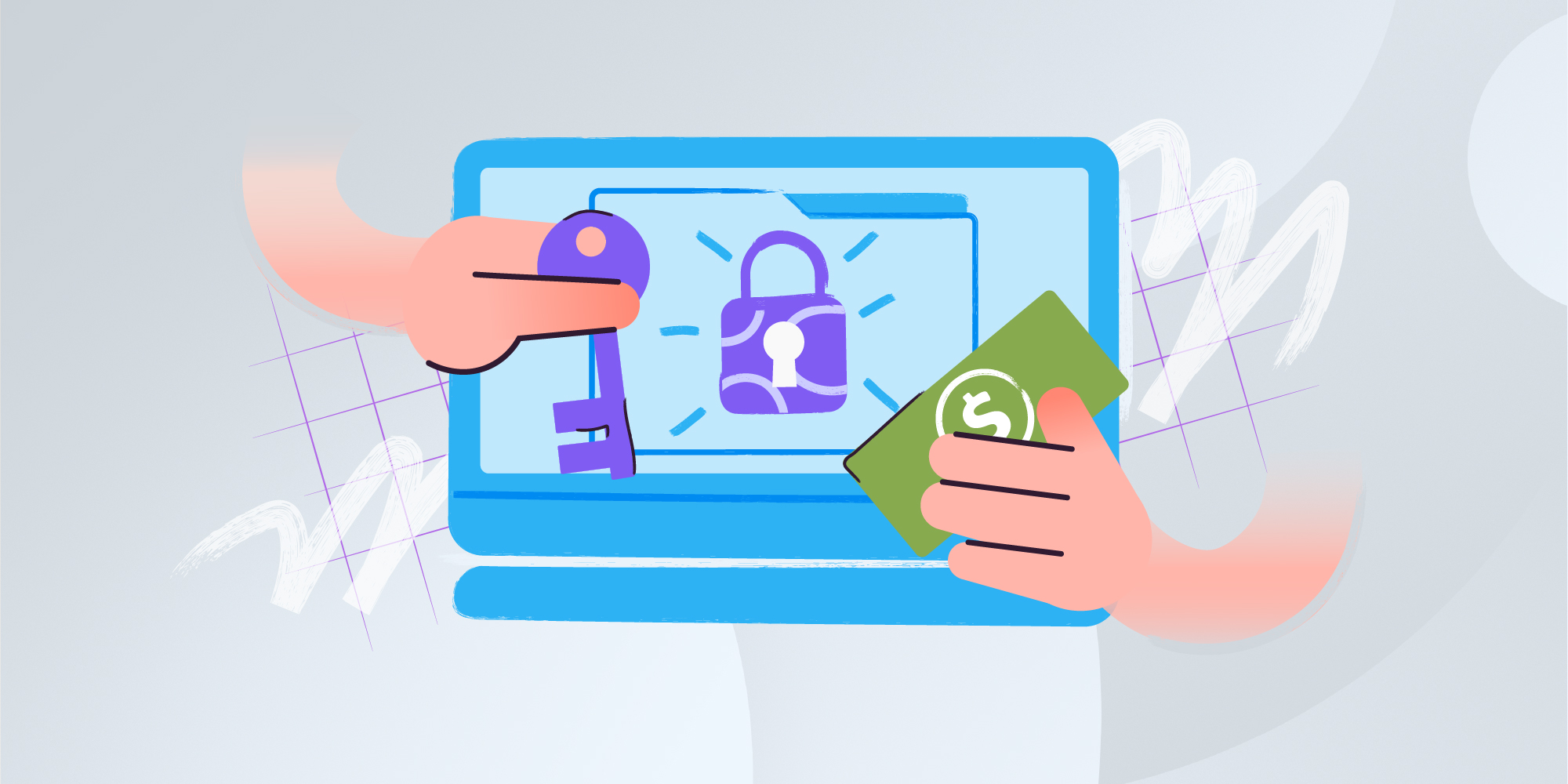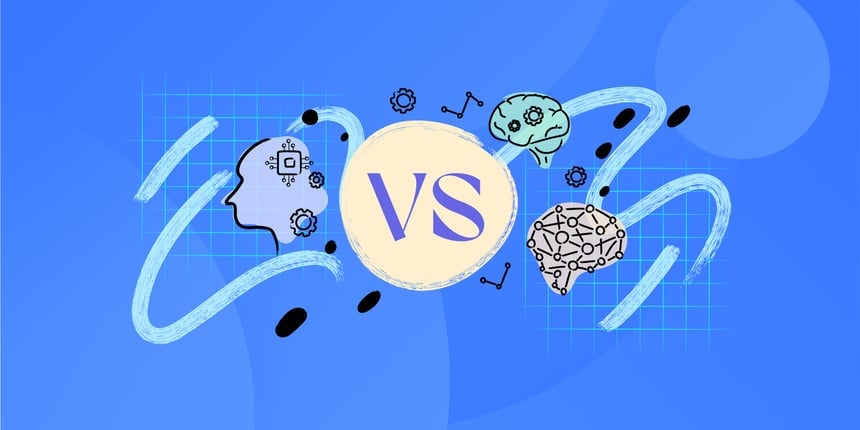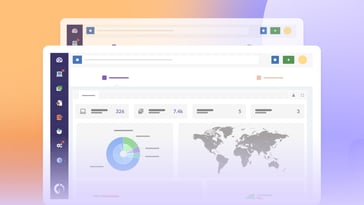In today’s digital world, businesses can’t afford to ignore cybersecurity threats. Every day, new types of attacks emerge, putting companies at risk of data breaches and financial losses. But here's the good news: cybersecurity as a service (CSaaS) is an innovative and scalable solution designed to keep your business safe without the hassle of managing an in-house cybersecurity team.
This post will dive into the details of CSaaS, explain why it’s so essential, and break down how it works. You’ll also discover the differences between CSaaS and traditional cybersecurity, the benefits it offers, and how to choose the right vendor for your needs. And if that’s not enough, we’ll take you through emerging trends, industry-specific use cases, and the role artificial intelligence plays in the future of cybersecurity.
Ready to level up your security strategy? Let’s get started.

What is cybersecurity as a service (CSaaS)?
Cybersecurity as a service (CSaaS) is a cloud-based solution that delivers security services on-demand. Instead of managing an in-house team or infrastructure, businesses can outsource their cybersecurity needs to experts who offer a wide range of services. Think of it as the ultimate security package—everything from firewall protection to threat detection—all handled externally by a third party.
What makes CSaaS stand out is its flexibility. Whether a company needs basic protection or a robust security solution, CSaaS vendors tailor their offerings to fit those requirements. As cyber threats become more sophisticated, having an expert team keeping an eye on the risks 24/7 makes a world of difference.
Why is cybersecurity as a service important?
In today’s digital landscape, security breaches are not just an inconvenience—they can cripple an organization. CSaaS helps businesses prevent these breaches by providing access to the latest tools and strategies to stay one step ahead of hackers. This proactive approach is essential, given how much sensitive data companies handle.
One of the key reasons cybersecurity as a service is important is the growing complexity of cyber threats. With new attack vectors like phishing, ransomware, and zero-day exploits, even the most tech-savvy companies can struggle to keep up. CSaaS takes that burden off a business’s shoulders by offering a specialized, ever-evolving defense system.
Moreover, CSaaS is essential because it allows businesses to focus on what they do best—without worrying about a potential data breach. For small and mid-sized companies, having a full-time cybersecurity team can be costly and inefficient. By outsourcing to a CSaaS provider, they get enterprise-level protection at a fraction of the cost, ensuring that security becomes an enabler of growth rather than a drain on resources.

Cybersecurity as a service vs traditional cybersecurity
The differences between CSaaS and traditional cybersecurity lie in several key areas. Below are the main scopes where they diverge.
1. Scope of services
CSaaS provides a broad, scalable range of services, from firewall management to advanced threat detection. Unlike traditional cybersecurity, where companies invest in standalone tools or hire a small in-house team, CSaaS offers access to all these services under one roof. This holistic approach ensures businesses can adapt to growing needs.
Traditional cybersecurity typically involves purchasing separate software, tools, and hiring a full-time IT team to monitor them. This setup works but can become complex and costly as new threats emerge.
2. Cost structure
One of the most significant differences between CSaaS and traditional cybersecurity is the pricing model. CSaaS operates on a subscription basis, making it a more budget-friendly option, especially for small businesses. Companies only pay for the services they need, allowing them to scale up or down as their business grows.
In contrast, traditional cybersecurity requires upfront investments in infrastructure, software, and personnel. While effective, this model may not be feasible for every company, particularly those with limited budgets.
3. Flexibility and scalability
CSaaS shines in its ability to scale with a company’s needs. Whether you're a small startup or a growing enterprise, CSaaS can adjust its services to fit your requirements. This level of flexibility is hard to achieve with traditional cybersecurity, where you may need to invest in new tools or hire more staff to keep up with demand.
Traditional cybersecurity solutions are often rigid, offering fixed packages that might not suit every company. Scaling up means additional costs for equipment and personnel, which can lead to inefficiencies.

How does cybersecurity as a service work?
At its core, CSaaS leverages cloud technology to deliver security services. Companies subscribe to a plan that fits their needs, and the CSaaS provider takes care of everything from threat monitoring to incident response.
Since the service is hosted in the cloud, businesses don’t need to worry about managing or updating software—they get round-the-clock protection from cyber threats.
Benefits of cybersecurity as a service
1. 24/7 Monitoring
One of the biggest advantages of CSaaS is 24/7 monitoring. Cyberattacks don’t follow a 9-to-5 schedule, so it’s crucial to have protection around the clock. CSaaS providers constantly scan networks, looking for vulnerabilities and responding to threats before they can cause damage.
2. Expert management
CSaaS vendors employ cybersecurity specialists who are well-versed in the latest threats and defense tactics. This expertise is hard to replicate with a small, in-house team. When companies outsource, they gain access to industry-leading professionals who focus solely on protecting their business.
3. Cost efficiency
For many businesses, hiring a full-time security team is out of reach. CSaaS offers an affordable alternative. Companies only pay for the services they need, and since it operates on a subscription basis, it’s easier to manage security costs without compromising on protection.
Challenges of implementing cybersecurity as a service
While CSaaS offers numerous benefits, there are also challenges that businesses need to consider. One common issue is data sovereignty. Depending on where the CSaaS provider is based, there may be concerns about where your data is stored and whether it complies with local regulations.
Another challenge is vendor reliability. Not all CSaaS providers offer the same level of service, so it's crucial to thoroughly vet a potential vendor to ensure they have the expertise and infrastructure to handle your security needs.
Services cybersecurity as a service companies offer
When you opt for cybersecurity as a service, you gain access to a wide variety of services. Here's a breakdown of the most common ones:
1. Threat detection and response
CSaaS providers monitor networks for suspicious activity and respond to threats as soon as they are identified. This service prevents small issues from escalating into significant security breaches.
2. Vulnerability management
Keeping systems updated is essential to avoid cyberattacks. CSaaS vendors scan your infrastructure for weak points and patch vulnerabilities before they can be exploited by attackers.
3. Firewall management
A well-maintained firewall is the first line of defense against cyber threats. CSaaS providers manage and monitor firewalls, ensuring they are correctly configured and up to date.

4. Compliance management
Maintaining compliance with industry standards like GDPR or HIPAA can be overwhelming. CSaaS helps businesses stay compliant by offering services that align with these regulations, reducing the risk of fines.
How to choose a cybersecurity as a service vendor?
Selecting the right CSaaS vendor is crucial to ensuring your business stays protected. First, assess your specific needs. Are you looking for basic protection or comprehensive services like compliance management and advanced threat detection? The scope of your requirements will help narrow down your options.
Another factor to consider is the vendor's track record. Look for a company with proven experience and strong client testimonials. You want to ensure they have the expertise to handle your cybersecurity needs.
1. Pricing and flexibility
Always evaluate the pricing model and ensure it aligns with your budget. Check if the vendor offers flexible plans that can grow with your business.
2. Security expertise
Make sure your CSaaS vendor has a team of certified security professionals. Their expertise will be key to protecting your business from evolving cyber threats.

Emerging trends in cybersecurity as a service
The cybersecurity as a service industry is constantly evolving, with new trends that shape its future. One major trend is the integration of artificial intelligence (AI) and machine learning into CSaaS offerings. These technologies are improving threat detection by identifying patterns that human analysts might miss. This allows for faster responses and more proactive defense strategies.
Another trend is the rise of automation in cybersecurity. CSaaS providers increasingly rely on automated systems to handle routine tasks, such as updating firewalls or scanning for vulnerabilities. This reduces the margin for human error and ensures a more consistent security posture.
Industry-specific applications of CSaaS
Different industries have varying cybersecurity needs, and CSaaS has adapted to provide industry-specific solutions. In healthcare, for instance, CSaaS ensures that patient data remains secure and compliant with HIPAA regulations. In the financial sector, CSaaS helps banks protect sensitive customer information from phishing attacks and ransomware.
E-commerce businesses also rely on CSaaS to protect payment processing systems and customer data from cyberattacks. In each of these cases, CSaaS provides specialized services that meet the industry's unique security requirements.
The role of AI and automation in cybersecurity as a service
The integration of AI and automation in cybersecurity as a service has revolutionized how threats are detected and mitigated. AI-powered algorithms can analyze massive amounts of data in real time, spotting anomalies that could indicate a cyberattack. This speeds up response times and reduces the chance of a successful breach.
Automation plays a key role in minimizing human intervention in routine security tasks. This not only increases efficiency but also frees up human experts to focus on more complex, high-priority issues. Together, AI and automation make CSaaS a smarter, more effective solution.

Future outlook for cybersecurity as a service
The future of cybersecurity as a service looks promising, with continued growth expected in the coming years. One area of innovation will be the use of quantum computing to improve encryption techniques, making it even harder for hackers to breach systems.
Additionally, as more businesses move to the cloud, the demand for CSaaS will continue to rise. Companies will seek out more sophisticated, cloud-based solutions to protect their data and infrastructure from increasingly advanced cyber threats.
The bottom line
Cybersecurity as a service is a flexible, scalable solution designed to protect businesses of all sizes from the ever-evolving threat landscape. From 24/7 monitoring and cost efficiency to expert management, CSaaS offers comprehensive protection. It differs significantly from traditional cybersecurity by providing on-demand services, flexible pricing, and scalability.
Emerging trends like AI, automation, and quantum computing are shaping the future of CSaaS, making it more effective and accessible than ever. However, businesses must also consider challenges like vendor reliability and data sovereignty when choosing a provider.
In a world where cybersecurity threats are growing more complex every day, cybersecurity as a service gives businesses the tools they need to stay safe without breaking the bank. Whether you're in healthcare, finance, or e-commerce, there’s a CSaaS solution out there for you.
Frequently Asked Questions (FAQs)
1. What is cybersecurity as a service?
Cybersecurity as a service (CSaaS) is a cloud-based solution that offers businesses access to cybersecurity services on-demand. It helps companies protect their data and infrastructure without needing an in-house team.
2. How does CSaaS differ from traditional cybersecurity?
CSaaS is more flexible, scalable, and cost-efficient compared to traditional cybersecurity, which requires significant upfront investment in tools and personnel.
3. What industries benefit most from CSaaS?
Industries like healthcare, finance, and e-commerce benefit greatly from CSaaS due to the specific security and compliance requirements in these sectors.
4. Can small businesses use CSaaS?
Absolutely! Small businesses can benefit from CSaaS by accessing enterprise-level security services without the need for a full-time cybersecurity team.
5. What should I consider when choosing a CSaaS provider?
When selecting a provider, consider factors such as pricing, flexibility, the vendor's expertise, and whether they offer services tailored to your industry’s specific needs.















